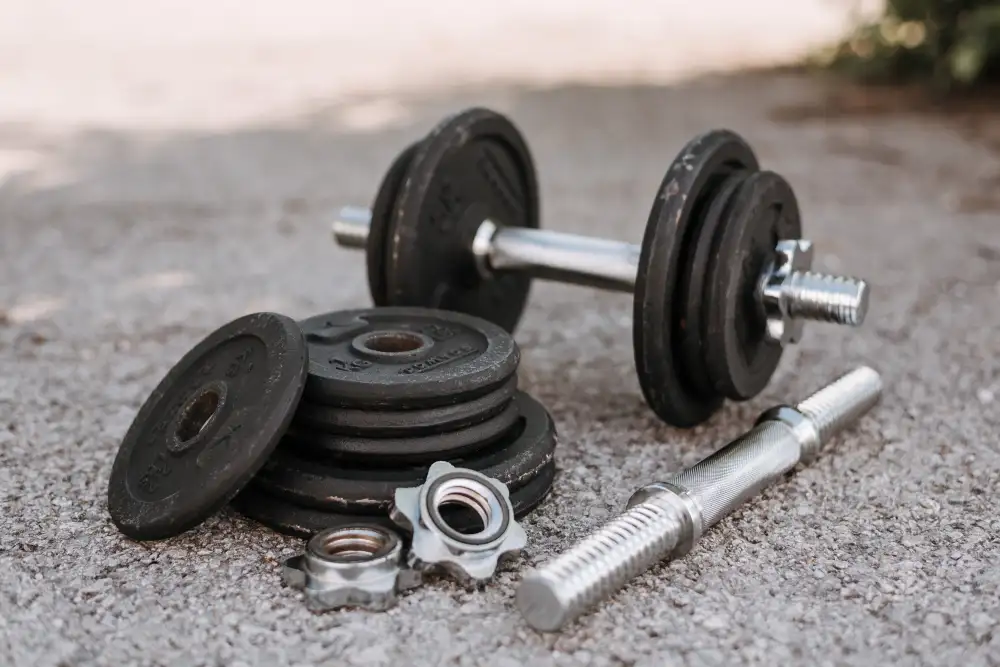Master the Art of Cleaning a Cast Iron Skillet: Essential Tips for a Pristine Kitchen Tool

A cast iron skillet is a versatile and durable kitchen tool that can last for generations if properly cared for. However, cleaning it can be a daunting task if you're not familiar with the right techniques. In this article, we will guide you through the process of cleaning a cast iron skillet, ensuring that it remains in pristine condition and ready to whip up delicious meals. With the right knowledge and tools, you'll be able to master the art of cleaning your cast iron skillet in no time!
Gather necessary supplies for cleaning
To effectively clean a cast iron skillet, it is important to gather the necessary supplies beforehand. Here are the essential items you will need:
1. Coarse salt: This abrasive ingredient helps to remove stubborn food particles and residue from the skillet's surface.
2. Soft sponge or brush: Opt for a non-abrasive sponge or brush that won't scratch the seasoned surface of your skillet.
3. Mild dish soap: While some purists prefer not to use soap on their cast iron, a mild dish soap can be used sparingly for tough stains or odors.
4. Hot water: Use hot water to rinse off the soap and remove any remaining debris from the skillet.
5. Paper towels or clean cloth: These will be used for drying the skillet after cleaning.
By having these supplies ready, you'll be well-prepared to tackle the task of cleaning your cast iron skillet and maintaining its pristine condition.
Preparing the skillet for cleaning
Before you begin cleaning your cast iron skillet, it's important to properly prepare it. Start by removing any excess food or debris from the surface of the skillet. You can use a stiff brush or a plastic scraper to gently scrape off any stubborn bits.
Next, rinse the skillet under warm water to remove any remaining food particles. Avoid using soap at this stage, as it can strip away the skillet's seasoning. Instead, rely on the power of hot water and gentle scrubbing to get rid of any residue.
If there are still stubborn stains or stuck-on food, you can create a paste using coarse salt and water. Apply the paste to the affected areas and use a cloth or sponge to scrub gently until the stains are lifted.
Once you've thoroughly rinsed the skillet and removed all visible dirt, pat it dry with a clean towel. It's important to ensure that there is no moisture left on the surface, as this can lead to rusting.
By properly preparing your cast iron skillet for cleaning, you'll set yourself up for success in achieving a pristine kitchen tool that will last for years to come.
Cleaning the cast iron skillet
Cleaning the cast iron skillet is an important step in maintaining its longevity and ensuring that it continues to provide delicious meals for years to come. To clean the skillet, start by rinsing it with hot water while it is still warm. Avoid using soap as it can strip away the skillet's seasoning. Use a stiff brush or sponge to scrub away any food particles or residue. For stubborn stuck-on food, you can sprinkle coarse salt on the skillet and scrub gently. Rinse thoroughly with hot water and dry immediately with a clean towel. Never let the skillet air dry as it can lead to rusting.
Drying and seasoning the skillet
After cleaning your cast iron skillet, it's important to dry it thoroughly to prevent rusting. Start by using a clean, dry cloth or paper towel to remove any excess moisture from the surface. Next, place the skillet on a stovetop burner set to low heat for a few minutes. This will help evaporate any remaining water and ensure the skillet is completely dry.
Once the skillet is dry, it's time to season it. Seasoning helps create a non-stick surface and protects the skillet from rusting. To season, apply a thin layer of vegetable oil or shortening all over the skillet, including the handle and exterior. Make sure to use an oil with a high smoke point like canola or grapeseed oil.
Place the oiled skillet upside down in an oven preheated to 350°F (175°C). Let it bake for about an hour. This process allows the oil to polymerize and form a protective coating on the skillet's surface.
After an hour, turn off the oven and let the skillet cool inside before removing it. The seasoning process may need to be repeated several times to build up a good layer of seasoning.
Remember not to use soap or harsh detergents when cleaning your cast iron skillet as they can strip away the seasoning. Instead, use hot water and a stiff brush or sponge to remove any food residue.
By properly drying and seasoning your cast iron skillet after each use, you'll ensure its longevity and maintain its non-stick properties. With proper care, your cast iron skillet will become even more seasoned over time, making it a cherished kitchen tool for years to come.
Storing the cast iron skillet properly
Storing the cast iron skillet properly is crucial to maintain its quality and prevent rusting. After cleaning and drying the skillet, it's important to store it in a dry place. Avoid stacking other cookware on top of it, as this can cause scratches or damage the seasoning. To protect the skillet from moisture, you can place a paper towel or a clean cloth inside it before storing. Additionally, consider using a cast iron skillet cover or a fabric cover to provide extra protection. With proper storage, your cast iron skillet will last for generations to come.
Tips and tricks for maintaining a clean skillet
To maintain a clean cast iron skillet, here are some tips and tricks to keep in mind. Firstly, avoid using soap when cleaning your skillet as it can strip away the seasoning. Instead, use hot water and a stiff brush to scrub off any food residue. If there are stubborn bits stuck to the surface, you can add coarse salt and scrub gently.
After each use, make sure to dry the skillet thoroughly to prevent rusting. Place it on a low heat burner for a few minutes or wipe it with a paper towel until completely dry. Once dry, apply a thin layer of oil or shortening to the entire surface of the skillet. This will help maintain its non-stick properties and prevent rust.
Another useful tip is to avoid cooking highly acidic foods in your cast iron skillet as they can break down the seasoning. If you need to cook such foods, consider using an enamel-coated cast iron skillet instead.
Regularly seasoning your cast iron skillet is essential for maintaining its longevity and preventing rust. To do this, apply a thin layer of oil or shortening after each use and bake it in the oven at 350°F (175°C) for about an hour.
Lastly, store your cast iron skillet properly by placing a paper towel or cloth between stacked skillets to prevent scratching. Avoid storing it with the lid on as this can trap moisture and lead to rust formation.
By following these tips and tricks, you'll be able to enjoy a clean and well-maintained cast iron skillet that will last for generations to come. Happy cooking!
In conclusion, mastering the art of cleaning a cast iron skillet is essential for maintaining its longevity and ensuring delicious meals every time. By following the steps outlined in this article, you can keep your skillet in pristine condition.
Remember to gather all necessary supplies before starting the cleaning process, including kosher salt, oil, and a stiff brush. Preparing the skillet by removing any food residue and heating it gently will make the cleaning process easier.
When cleaning the cast iron skillet, avoid using soap and opt for a gentle scrub with salt instead. This will help preserve the skillet's seasoning and prevent any unwanted flavors from seeping into your food.
After cleaning, make sure to dry the skillet thoroughly to prevent rusting. Applying a thin layer of oil and heating it on low heat will help maintain its non-stick surface.
Properly storing your cast iron skillet is crucial to prevent moisture buildup. Store it in a dry place with a paper towel or cloth placed inside to absorb any excess moisture.
To maintain a clean skillet, avoid cooking highly acidic foods or leaving water sitting in it for long periods. Regularly seasoning your skillet will also help keep it in top condition.
By following these tips and tricks, you can enjoy many years of cooking with your cast iron skillet and create delicious memories in your kitchen. Happy cooking!
Published: 03. 02. 2024
Category: Home



